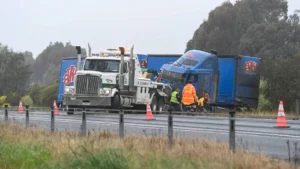Alaska’s Division of Elections assured voters that polling locations across rural areas will remain open and staffed for general election. After Alaska rural election challenges in the August primary, particularly impacting Native communities, officials prioritized measures to prevent similar obstacles. “We are optimistic that all precincts will be open and ready to go,” said Division Director Carol Beecher. Beecher noted staffing efforts in rural communities, especially in Region 4, which spans Northern, Western, and Southwest Alaska. It includes the Aleutian Chain and villages like Tyonek, Port Graham, and Nanwalek.
During the primary, Rep. Mary Peltola raised concerns about polling sites that remained closed in some Alaska communities. Beecher explained that staffing issues at two locations, Wales and Kaktovik, kept polls from opening. Anaktuvuk Pass also faced delays, opening briefly due to a coordinated effort with the town’s mayor. Additionally, Beecher confirmed logistical delays with absentee ballots impacted 20 rural communities. Late absentee ballots, primarily affecting remote areas like Nome, stemmed from challenges at absentee voter offices (AVOs). “The time frame between printing and mailing ballots is tight,” Beecher said, noting rural areas’ dependence on timely delivery.
Ahead of Tuesday’s election, Bethel and Dillingham officials reported minimal issues. Additionally, Dillingham locals cast record numbers of early ballots in anticipation of severe weather. Michelle Sparck, the Native Vote Director, emphasized the importance of planning, highlighting concerns about potential challenges from Mother Nature or human error. She explained how her organization worked diligently to ensure a smooth voting process in communities like Nuiqsut. In Nuiqsut, delays in the delivery of voting materials caused significant anxiety among residents during the election preparations. Sparck’s team addressed these issues proactively to guarantee that voters could participate without disruption. Their efforts focused on building trust and ensuring reliable access to the voting process for all community members.
The Department of Justice will monitor election-related activities in Alaska’s five census areas and boroughs for federal voting rights compliance. Furthermore, these include the North Slope Borough, Northwest Arctic Borough, Bethel Census Area, Dillingham Census Area, and Kusilvak Census Area. Sparck praised this government attention, she highlighted that Section Five of the Voting Rights Act is essential for addressing Alaska’s language issues. Although Sparck acknowledges that Alaska rural election challenges have left some Native communities disillusioned, she remains hopeful for a strong turnout. On election day, she encouraged citizens to exercise their right to vote.
This news story was originally published by Alaska´s News Source.












